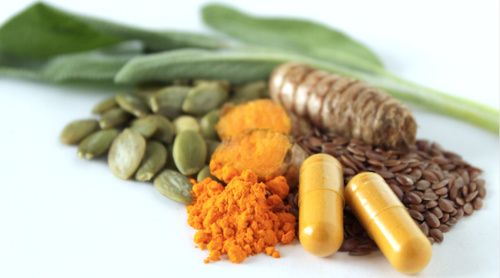Depression: symptoms, causes, all remedies
Depression is a mood disorder that affects more than 10% of the world’s population and is not always easy to diagnose. Also known as Major Depressive Disorder, depression negatively affects both a person’s social life and physical health, impacting their quality of life. What are the symptoms, causes and most effective treatments.
Depression is a disease that about 10% of the population suffer from . It is characterized by a mood imbalance with lasting effects over time and repercussions on relationships, work, social life. Let’s find out better.
> Symptoms and clinical forms of depression
> Causes
> Diagnosis
> Natural treatments for depression

Symptoms and clinical forms of depression
A sense of emptiness pierces the interior, energy drops, self-esteem drops and you enter a vortex called depression , or a condition of deep sadness that takes on, in the most serious forms, the characteristics of a psychotic disorder. In other words, the soul suffers , afflicted by a feeling of inadequacy and distrust due to a series of individual, family and social reasons.
The most frequent depressive clinical forms are three:
- major depressive episode , which manifests itself with episodes marked by depressive disorders of a certain severity, which last for at least two weeks, daily and for a good part of the day;
- bipolar disorder , the course of which is characterized by both depressive episodes and manic excitement;
- dysthymia , which has symptoms similar to depression, but less severe in intensity and more persistent over time.
Causes
On a physiological level, depression could derive from an altered balance of the actions of certain neuromediators on the receptors and of these in the translation of the message. In particular, the systems of serotonin, dopamine, and noradrenaline, substances involved in the regulation of pleasure, research and novelty, would be involved.
Among the most common causes:
- external factors (dismissal, separation, divorce, bereavement),
- hereditary elements (genetic disposition to depression),
- physical diseases or disorders (anemia, hormonal disorders, immobility conditions, vitamin deficiencies, poor thyroid activity ).
Some women may experience symptoms of postpartum depression , the depression that follows childbirth, often associated with a sharp drop in hormones, estrogen, and progestogen.
Diagnosis
An accurate diagnosis for depression goes through both physical and psychological evaluation . Some doctors use special questionnaires to evaluate patients’ symptoms and identify them or not, such as alarm bells of a depressive state.
The personal and family anamnesis is the next step: in some cases, in fact, depression can also be hereditary.
For an accurate diagnostic evaluation, however, doctors often also perform laboratory tests , to exclude that the symptoms also depend on other causes, such as hypothyroidism, metabolic disorders, infections and systemic diseases.
Denial of depression only makes the intensity of the disorder worse, while accepting this condition as a fact is the first step to finding oneself and starting to live.
NATUTAL TREATMENTS AGAINST DEPRESSION
Power supply in case of depression
Adequate diet has great therapeutic value in depression. The cure goes to foods rich in B vitamins , and among these, above all:
- Vitamin B1 , or thiamine, essential for the functionality of nerve cells (contained in wheat germ , hazelnuts , flakes and oatmeal, walnuts , wheat, broad beans, corn, muesli );
- Vitamin B3 , or niacin, used in the field of orthomolecular psychiatry in the treatment of many mental disorders (foods such as wheat bran , horse or pig liver, peanuts , guinea fowl or chicken breast, turkey breast, salmon are rich in it. tuna, mackerel, dehydrated peaches);
- Vitamin B6 , or pyridoxine , involved in the formation of chemical treatments of the nervous system (present in cereals, various seeds including celery and sunflower seeds , meat, milk, fruit).
Herbal medicine to fight depression
The help that can come from herbal medicine is effective especially in cases of mild and moderate depression. For example, in case of sadness and general discouragement, an infusion of violet is indicated ; pour a cup of boiling water over a teaspoon of dried flowers, leave to infuse for up to 10 minutes, strain and drink 1 or 2 cups throughout the day).
In case of mild depression and anxiety , take 40 drops of verbena mother tincture , in a little water, 3 times a day, for 2 months. If necessary, repeat the treatment after one month of interruption. In cases of psychophysical depression it may be useful to take 1-2 cups a day of infusion prepared with 1.5 teaspoons of aniseed , 2.5 teaspoons of chamomile flowers , 3 teaspoons of valerian root , 1.5 teaspoons of zest of bitter orange and 250 ml of natural mineral water (mix the herbs thoroughly, pour the boiling water, cover, leave to infuse for about 20 minutes and filter).
But the herbal remedy for depression par excellence is Hypericum perforatum (30 drops of mother tincture with a little water, 3 times a day, between meals), also known as “St. John’s wort”. St. John’s wort can interfere with the birth control pill and should not be administered during pregnancy.
Among the herbal remedies there are also some medicinal mushrooms useful for physical and mental fatigue and depression, such as Reishi and Cordyceps. These help the body and the psyche to regain well-being, improving the quality of sleep, energy, mood .
Learn more about all herbal remedies for depression

Bach flowers and Australian flowers
Against depression Bach indicated three specific flowers: Gentian, Mustard and Wild Rose .
Gentian is traditionally assumed in case of reactive depression in the face of obstacles or failures, accompanied by the feeling that it is useless to fight, Mustard for an endogenous depression , caused by elements that are difficult to identify and characterized by a state of severe pain, with suffering of soul and cry.
Wild Rose goes to heal subjects characterized by a fatalistic attitude of disinterest, adopted to no longer feel pain, and by a lack of emotions and any confidence in the possibility of still having something from life; it is generally used to treat the type of depression referred to as a major depressive episode.
Among the Australian flower essences, Tall Yellow Top is used as a adjuvant in the treatment of depressive states .
In the case of seasonal depression, on the other hand, and for ailments related to the lack of light in the winter months, Sunshine Wattle is useful .
Traditional Chinese Medicine
Depression in traditional Chinese medicine is due to a difficult course of internal energy , blocked in a phase of stasis that can lead to symptoms such as negativity, irritability, insomnia , sadness.
The organs affected are the Liver, the Spleen and the Heart . The therapy consists in mobilizing the qi , the energy, going to work on points such as:
FENG LONG (halfway between the inner edge of the patella and the vertex of the external malleolus), dissolves the humidity, mobilizes the qi of the Spleen;
GAN SHU (Shu point of the back of the Liver, at 1.5 cunbeside the spinous process of the IX thoracic vertebra), tones the liver and biliary vesicle, dissolves humidity;
SHEN MEN (on the cross crease of the wrist), tones and regulates the cardial qi , purifies the Heat;
TAI CHONG (on the back of the foot, in the depression distal to the joint between the first and second metatarsal), tones and regulates the liver, regulates and cools the blood;
XIN SHU (located 1.5 cun to the side of the spinous process of the V thoracic vertebra), regulates the Heart, calms the Shen , regulates the qi .
Essential oils
The essential oils indicated in case of depression are rose, lavender, jasmine, thyme and peppermint essential oil . They are particularly effective when used for massages (4-5 drops of your chosen essential oil in a small glass of sweet almond oil) or baths (15 drops of your chosen essential oil in warm bath water). When, in a moment of crisis, immediate help is needed, spray 1 or 2 drops of an oil chosen from those indicated on a handkerchief and inhale the essence deeply.
Even the essential oil of bitter orange, is nergizing and invigorating . This has a calming action against fears of various kinds and counteracts depression bringing the person to a joyful state of mind with a strong recovery of lost energy. Useful against melancholy, it is an essential oil that restores joy, comforts and removes insecurities.
Homeopathy in case of depression
Homeopathic treatment of depression requires medical supervision. Among the preparations useful for counteracting the disorder:
Aurum metallicum 9 CH (5 granules, once a day; subsequently 30 CH, one weekly dose), suitable for senile depression associated with cardiovascular disorders;
Ignatia amara 30 CH (5 granules, 1 to 3 times a day), in case of depression due to worries, fears, disappointments in love, loss of an affection or a loved one;
Natrum muriaticum 30 CH (one weekly single dose), effective against sadness, depression, withdrawal in oneself, ease of crying;
Natrum sulfuricum 15 CH (5 granules, once a day), fights seasonal depression with a tendency to apathy and indolence.
Exercises
Exercise has a positive effect not only on the body (it helps to combat hypertension, diabetes, obesity and other diseases) but also on the mind. In particular, it has been shown that regular physical activity can alleviate the symptoms of depression and prevent its relapses. This is because, whatever physical discipline you have chosen, movement helps to:
- experience positive distractions;
- helps fight negative moods;
- it increases self-esteem and facilitates a positive comparison with other people and with the environment.
Setting ourselves a goal, however minimal (we can decide to walk for 10 minutes a day), and reaching it, makes us feel more “capable”, more confident in our ability to reach goals and therefore to manage our depressive symptoms.
Yoga is also very useful for fighting the symptoms of depression , as is the practice of meditation .






























+ There are no comments
Add yours